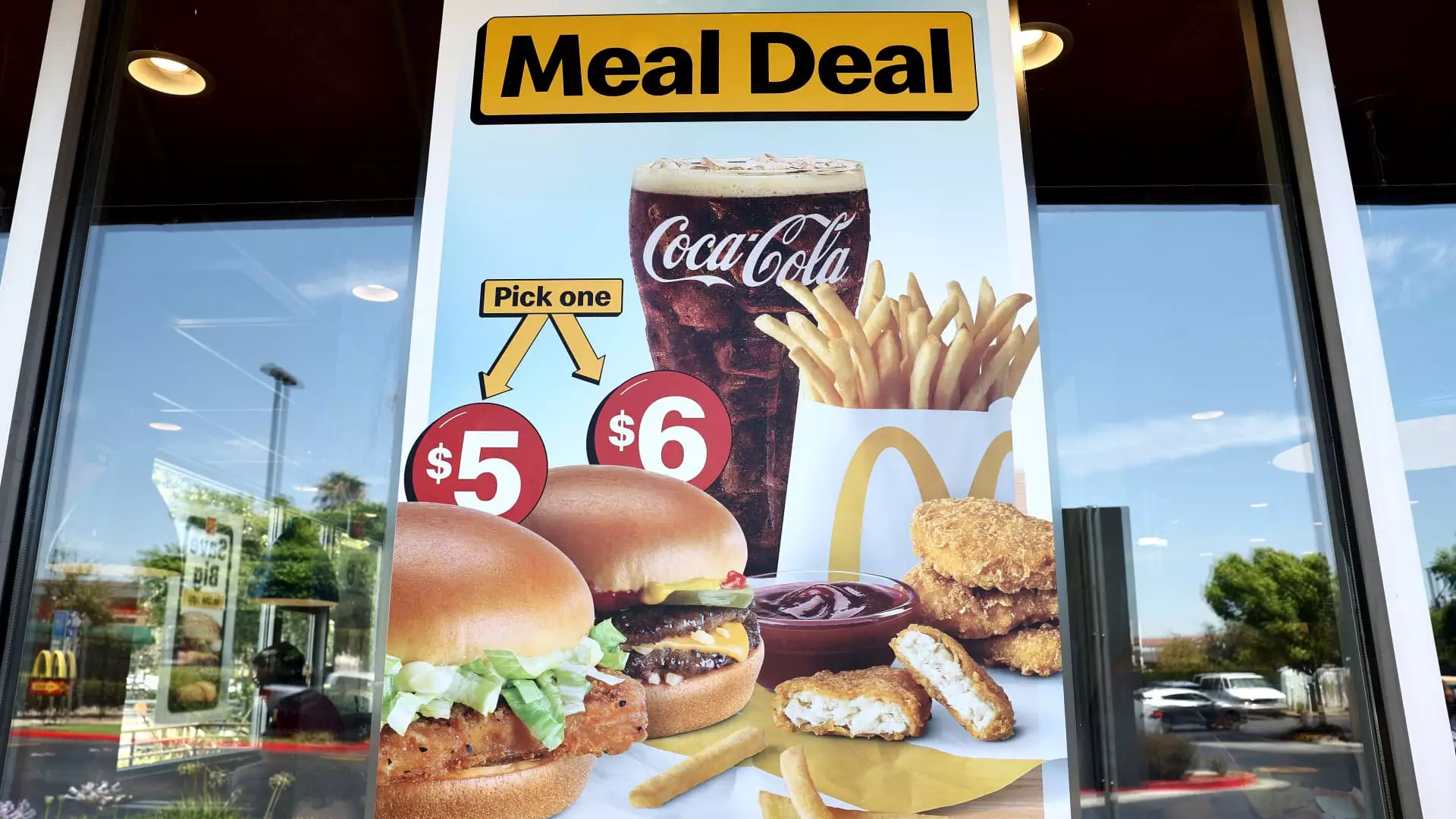Restaurant CEOs are currently fixated on the concept of “value” as a primary explanation for their recent sales slumps. This term has been repeatedly emphasized in various quarterly conference calls, showcasing the industry’s intense focus on providing affordable options for consumers. From leaders at McDonald’s to Papa John’s, the use of the word “value” has surged in an effort to attract customers back amidst rising food prices and reduced spending on dining out.
The Bureau of Labor Statistics reported a significant 27.2% increase in prices for food away from home since June 2019. This surge has led to a decline in restaurant traffic and subsequent sales, as consumers are now more reluctant to splurge on dining experiences that they no longer perceive as providing good value for their money. As a response, many restaurant chains are rolling out discounts and promotions like $5 meal deals in a bid to entice customers back through their doors.
Numerous restaurant executives have admitted that their chains are falling short in terms of value offerings. For instance, McDonald’s CEO acknowledged a recent dimming of the company’s value reputation. This admission came after McDonald’s reported a 0.7% decline in U.S. same-store sales in the second quarter, attributing a portion of this underperformance to value execution. To combat this, McDonald’s launched a $5 Meal Deal which successfully resonated with low-income consumers, leading to an extension of the promotion in various markets.
Despite the industry’s value-focused strategies, Chipotle Mexican Grill has reported strong same-store sales growth and increasing traffic. However, Chipotle has also faced criticism from customers who accused the company of reducing portion sizes. In response, Chipotle emphasized generous portions to reinforce its reputation for value. CEO Brian Niccol reaffirmed that the company’s focus on value has been positively received by consumers, indicating a shift towards consumer-oriented value strategies.
Value-driven consumer behaviors aren’t limited to fast-food chains; casual dining restaurants are also feeling the pinch. Dine Brands, which owns Applebee’s and IHOP, reported that low-income consumers are spending less at their restaurants, and when they do visit, they stick to the value menu. This trend has resulted in surprise same-store sales declines for both Applebee’s and IHOP, highlighting the broad impact of economic challenges on the restaurant industry.
Amidst these value-driven consumer behaviors, restaurant stocks have faced pressure from investors concerned about the industry’s financial health. Companies like McDonald’s, Restaurant Brands, and Starbucks have seen their stock prices decline, reflecting worries about profitability as chains offer discounts to attract customers. The profitability of restaurants may suffer due to these discount strategies, raising concerns among investors and franchisees alike.
Despite these challenges, the industry-wide focus on value has brought some customers back. Burger King’s introduction of a $5 value meal was met with customer interest, leading to plans for an extended promotion period. While concerns about profitability and the risk of a value war loom large, the emphasis on affordability has the potential to enhance the value proposition for consumers and spark renewed interest in dining out.
Overall, the restaurant industry’s recent emphasis on value as a key driver of consumer engagement reflects a strategic response to economic challenges and evolving consumer preferences. By prioritizing affordability and value, restaurant CEOs are positioning their brands to thrive in a competitive market environment while also addressing concerns around shareholder value and profitability.

